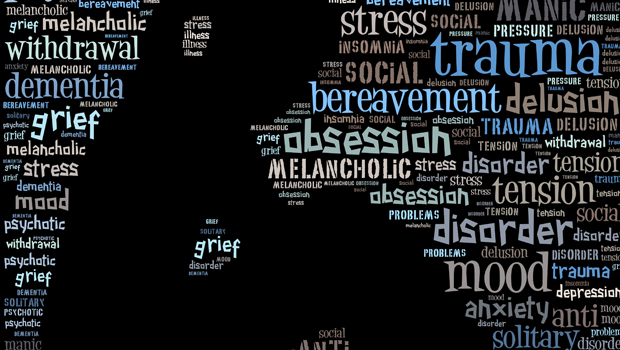Mental health is a topic that has become increasingly popular in our society, especially as people become more open about their struggles. In recent years many of us have come to the realization that we all know someone who is diagnosed or else is affected by mental illness. It is the source of a lot of pain and suffering, yet doesn’t muster up as much compassion or understanding as other more visible illnesses like diabetes, cancer or injuries resulting in amputations, etc.
However, even as the stigma melts away, there is still a lot of confusion and glaring holes in medical explanations of why people develop mental health issues, as well as how to treat them properly. And though the right pharmaceutical prescription lends a big part in the success of a patient, there are other non-drug therapies and treatments that are being used today, with much success. These, coupled with the appropriate dosage of medication allows the patient to have more control over his or her life, as well manage their health.
Cognitive Behavioral Therapy (CBT)
This type of therapy was developed for people suffering from mental illness like eating disorders, anxiety, depression, and obsessive compulsive disorder. These programs provide the participants with short term goals that change and shape the way that they behave in different situations. By problem-solving in a practical and logical way, these methods become a natural extension of those using them and they find it easier to function in society. The way that CBTs are administered varies greatly from one-on-one sessions with a counsellor, to group sessions, or even online modules that patients can complete at home on their own.
Practicing Mindfulness
You might have heard this term from a holistic health professional or your yoga instructor, but mindfulness has been playing a big part in the medical treatment of different mental illnesses including anxiety and depression. By training yourself to exist in the moment, appreciate who you are, where you are, with whom you are spending this time, and more, you decrease stress levels and find happiness in small things. Though there are specialized clinics that instruct on how to best practice mindfulness, it’s important to note that it has to be practiced all the time to bring real results. Thankfully, there is a wealth of mobile applications that prompt you into being mindful, reminding you of your new lifestyle and motivating you.
Alternative Treatments
In additional to CBTs and mindfulness exercises, there are some proven safe, non-invasive, non-drug neuromodulation treatment alternatives provided by select psychotherapy clinics. These treatments range from light therapy, dynamic neurofeedback, cranial electrotherapy stimulation, to repetitive transcranial magnetic stimulation. These neurotherapies are non-invasive, meaning that there is nothing that enters your body, and it can supplement or replace the need for medication for the existing condition.
Though these techniques have all been proven effective for treatment of mental illness, it is always best to first ask for the advice of your psychiatrist. Based on your personal history or your condition, he or she might find you better suited to one or more of these treatments. Your psychiatrist might also have a preassembled group of patients which you can join for group therapy, or a trusted psychologist with which you can go through your CBTs.
The good news is that today there are many more tools for the treatment of mental illness than before, and most of these without any, or a very slim chance, of harmful side effects. As we speak more openly about mental health, perhaps more of those affected will reach out for professional help, which as mentioned, doesn’t not just mean medication, but a holistic approach to living with the condition.













Comments